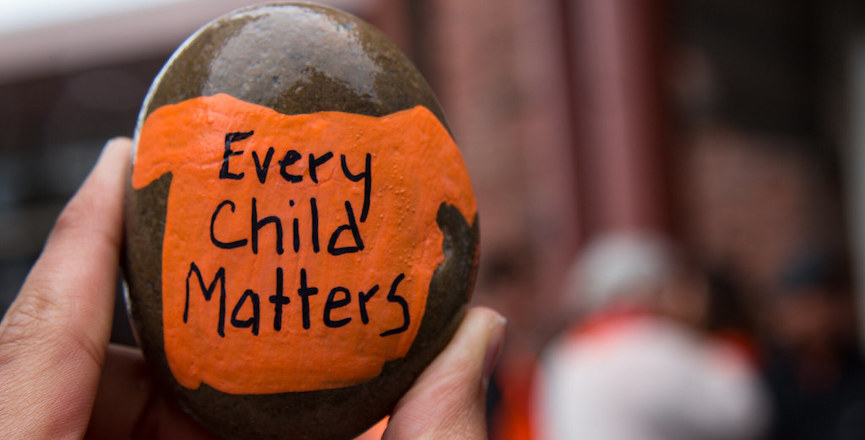While September 30 has been known as Orange Shirt Day since 2013, this year marks the first time the federal government has designated it a statutory holiday. While this is an important step forward, the first National Day of Truth and Reconciliation is being marked with confusion, disinterest and missteps.
In provinces like Ontario and New Brunswick, Conservative premiers have chosen to ignore the Truth and Reconciliation Commission’s Calls to Action and not recognize the new statutory holiday. Many private businesses, who look to their leaders for guidance, will expect their employees to report to work as if it were just another Thursday. As if they didn’t live in a country guilty of committing the ongoing genocide of Indigenous peoples.
September 30 is about learning for non-Indigenous Canadians and healing for Indigenous peoples from coast to coast to coast. As a non-Indigenous settler Canadian who has learned some of these lessons the hard way, may I suggest a list of things that this day is not supposed to be.
The day is not a day off. If you work in one of the few sectors that are closing their offices on September 30 — do something with it. This isn’t a chance to catch up on errands. This is a chance to reflect on and reckon with the horrors of the Indian residential school system — the effects of which are still felt in every part of the country — and the ways we are still failing Indigenous peoples today.
For example, listen to Phyllis Webstad’s live session “Beyond Orange Shirt Day” hosted by the National Centre for Truth and Reconciliation at 11:30 ET. If you’re in Ottawa, The Indigenous Arts Collective of Canada is hosting “Remember Me: A National Day of Remembrance” which includes ceremonies and activities to listen and learn.
The day is not supposed to be performative. Do something substantive. Sure, buy and wear an orange shirt from an Indigenous artist or company. But go a step further and donate your salary from your “paid day off” to an organization doing work with Indigenous communities. This positive action was suggested by Dani Lanouette, who is Anishinaabe from Chippewas of Nawash and Algonquins of Barriere Lake. And don’t tweet about the thing you did. Instead, amplify the voices of those sharing their stories on September 30.
The day is not a chance to burden your Indigenous friends. One effect of the Truth and Reconciliation Commission six years ago was how it unearthed the deep trauma in so many Indigenous communities. The emotional labour that folks have had to carry for generations should not be made more heavy, especially on September 30.
Instead of putting more weight on them, do your own learning. Unlearn what you thought you knew about history, learn it from an Indigenous perspective, then work to educate other non-Indigenous people. Talk to your racist aunt or uncle, and help them understand that this is about our oppressive and violent history. We must confront denial and ignorance within ourselves and within our communities, and be willing to call it out when we see it.
The final thing that September 30 is not, is that it’s not the end of our collective work. Come Friday, we will still be living in the same country. The Indian Act is still an oppressive policy tool. Not all First Nations, Inuit and Métis communities have clean drinking water. Indigenous peoples still face significant inequity in the areas of education, health, and economic outcomes compared to non-Indigenous Canadians.
As a settler, I have worked with First Nations, Métis and Inuit communities throughout my career. And as a settler, I must do better and continue to remind my fellow non-Indigenous Canadians to do the same. Residential schools are closed, but we are still enabling that system through racist and colonial structures each and every day.
On September 30, devote yourself to the work of reconciliation and ask yourself how you can help Canada do better in the days, years, and generations that follow.
Caitlin Kealey is the CEO of MediaStyle.
Image: BC Gov/Flickr



